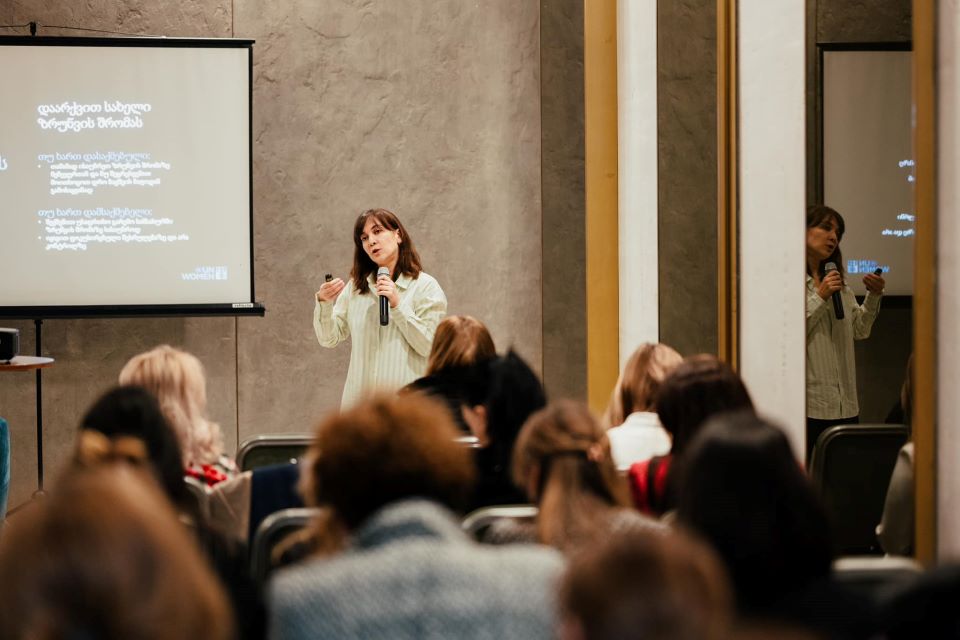UN Women celebrates the International Day of Care and Support together with the private sector
Date:

Care work is an important factor in the development of each person, family, society and economy. The time that women and men spend on this type of work has social and economic value, but it is often disregarded. It is significant that globally, women spend three times more time per day on unpaid care work than men. In Georgia, this indicator is even higher, with women spending five times more time on unpaid care work than men. Due to such unequal distribution, they are no longer able to start a career after receiving their education, maintain a paid job, advance and realize their potential. Consequently, because of their lack of time, women’s poverty increases and their contribution to economic development decreases, which, in turn, hinders not only gender equality but also the sustainable development of the country.
Work on eliminating inequality begins with the recognition and appreciation of the importance of care work. The International Day of Care and Support is dedicated to this issue, and this year, it was celebrated with a meeting organized by UN Women together with the companies that have signed the United Nations Women’s Empowerment Principles (WEPs).
Representatives of more than 40 business organizations attended the event. The participants familiarized themselves with the data on how much time women spend on unpaid care work and how this inequality affects not only their lives but also the economic and social development of the country. In addition, the attendees discussed what role the private sector can play in solving the problem, what benefits are available to employed parents today, and how parental leave is compensated. At the meeting, it was also noted that according to preliminary estimates by UN Women, 2.9 billion hours are spent annually on unpaid care work in the country, 84 per cent of which are performed by women, which is equivalent to the workload of almost 1.5 million full-time employees and 23 per cent of Georgia’s GDP.
“The meetings where we discuss the impact of care work on employment and how we, as businesses, can work to create a more equal environment are always very important,” noted Mariam Japaridze, Corporate Social Responsibility Manager at Tegeta Holding. “Today, we heard interesting findings about what challenges and barriers women face in the employment market and what is the rate of their involvement in economic activity. The empowerment of women is a priority direction of corporate social responsibility for Tegeta. Accordingly, the received information will help us to think about the existing challenges and to take greater care of creating an equal and diverse environment with more effort.”
According to UN Women data, investing in the development of care work globally can grow the economy, reduce women’s poverty and create up to 300 million jobs by 2035. In addition, the transformation of care systems is one of the key factors for achieving gender equality, thereby realizing the Beijing Declaration and Platform for Action. This year, the main theme of the International Day of Care and Support was “Transforming Care Systems to Achieve the Sustainable Development Goals in the Context of Beijing+30”.
The International Day of Care and Support was celebrated within the framework of the UN Women Regional Office for Europe and Central Asia programme “Women’s Increased Leadership for Resilient and Peaceful Societies”, which is implemented with the support of the Government of Denmark.